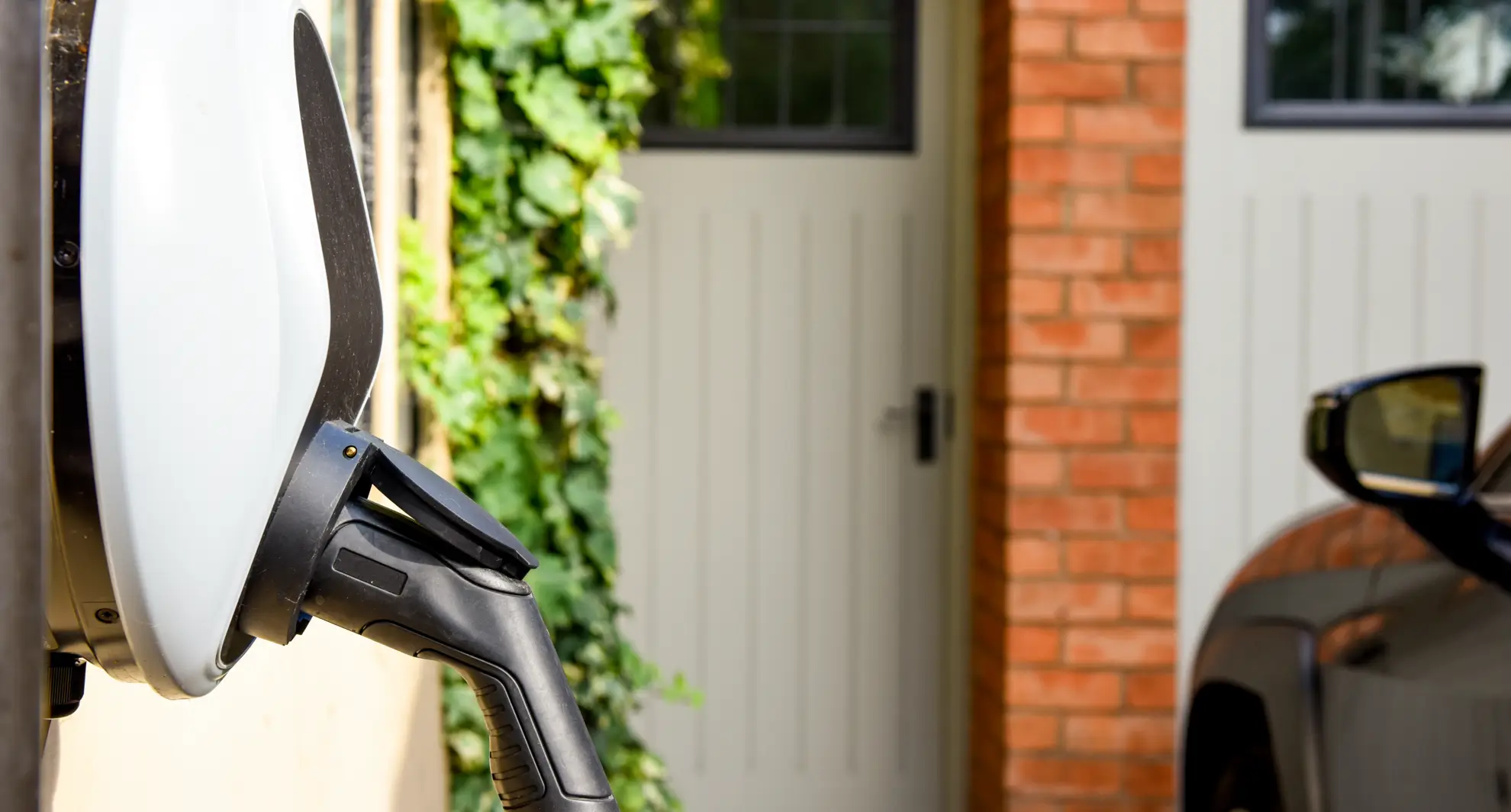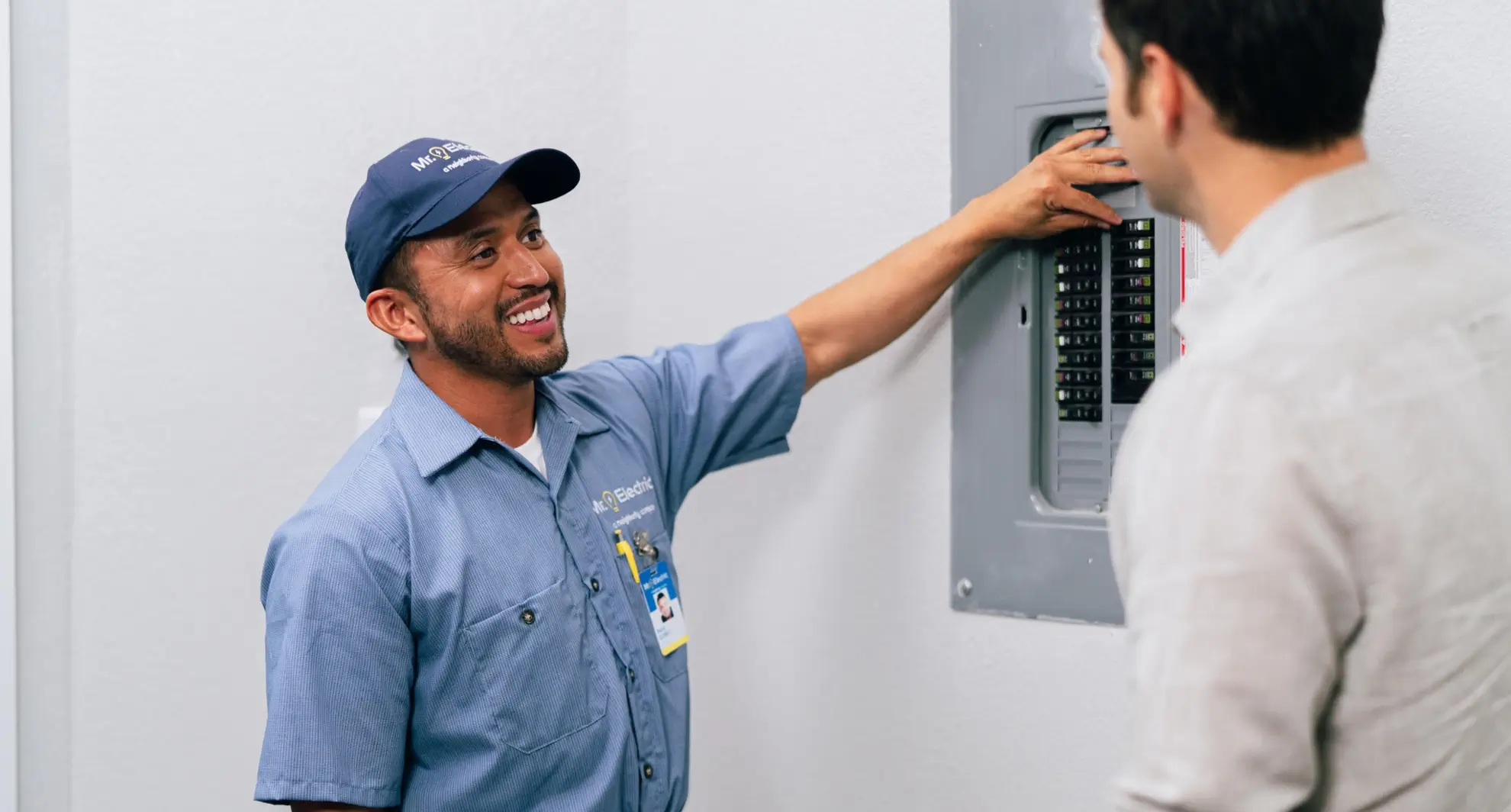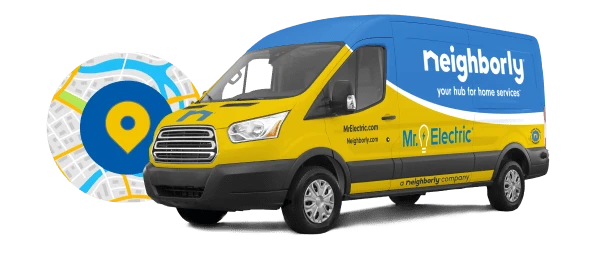
Mr. Electric explains EV charger installation costs and process.
|
Installing an EV (electric vehicle) charger at home is a smart move if you're looking to maximize the convenience and functionality of your electric vehicle. But before you make the jump, it's important to understand the cost of installing an EV charger at home. The total cost can vary based on several factors, starting with the type of charger to the specifics of your home’s electrical system. In this guide, we’ll break down what you can expect when it comes to EV charger installation costs and the factors that influence these prices, helping you budget accurately for your home charging station.
5 Factors That Affect the Cost to Install an EV Charger
The total cost to install an EV charger at home can differ significantly depending on a variety of factors. Let's take a look at the main elements that influence the price:
1. Type of EV Charger
The type of charger you choose plays a significant role in the overall cost. There are generally three types of EV chargers:
- Level 1 Chargers (120V): This is the most basic charger, often using a standard household outlet. It’s slower, typically adding 2 to 5 miles of range per hour of charging. If you need to install a Level 1 charger, it could range from $0 to $500 depending on your home’s setup.
- Level 2 Chargers (240V): These chargers are much faster and require a dedicated circuit. They can add up to 25 miles of range per hour of charging. EV charger installation costs for a Level 2 charger typically range between $500 and $2,000, including both equipment and labor.
- DC Fast Chargers: These are the fastest chargers and are typically used in commercial settings. Installing a DC fast charger at home is very rare, as it requires a substantial upgrade to your electrical system and can cost upwards of $10,000 or more.
2. Electrical Upgrades and Panel Capacity
In some cases, the cost to install an EV charger at home includes the need for electrical panel upgrades. If your electrical panel doesn’t have the capacity to handle the additional load required by a Level 2 charger, you may need to upgrade it. Electrical panel upgrades can range anywhere from $500 to $2,500, depending on the size of the upgrade and the complexity of the job.
3. Labor Costs
Labor costs will also contribute to the total cost of installation. Hiring an electrician to install your EV charger ensures the job is done safely and according to code. Labor costs vary by location, but generally, electricians charge $50 to $100 per hour, and the installation can take anywhere between 4 and 8 hours.
4. Permit Fees
In some areas, you may need a permit to install an EV charger, especially if you’re upgrading your electrical panel. Permit fees typically cost between $50 and $300, depending on your local building code regulations.
5. Additional Costs
Other factors may influence the overall cost, including:
- Distance between the electrical panel and charging location: The farther the distance, the more expensive the installation due to increased wiring costs.
- Conduit and wiring requirements: Depending on your home’s construction, additional conduit or wiring may be required to connect the charging unit to your panel, which can add to the home charging station cost.
What’s the Average EV Charger Installation Cost?
On average, the cost to install an EV charger at home can range from $500 to $2,000 for a Level 2 charger, including equipment and installation. Here’s a more detailed breakdown:
- Basic Level 1 installation (if a dedicated circuit is required): $100-$500
- Level 2 charger installation (including labor, charger, and potential electrical upgrades): $1,000-$2,000
- Panel upgrade (if needed): $500-$2,500
- Permit fees: $50-$300
- Additional wiring or conduit installation: $200-$600
These costs are estimates and may vary depending on the complexity of your home’s electrical setup and your location. However, in general, installing an EV charger at home can be a manageable investment considering the long-term savings in fuel costs and the convenience of home charging.

The Installation Process: What to Expect
Installing an EV charger typically involves a few key steps, which can take anywhere from a few hours to a full day, depending on your home's setup and the complexity of the installation.
- Consultation and site assessment: The first step in the installation process is for an electrician to assess your home and evaluate your electrical panel’s capacity. They will also determine the best location for the charger, considering both the convenience of use and the installation process.
- Permit and approval: If required, your electrician will apply for the necessary permits from your local jurisdiction. They may also need to submit paperwork for approval before beginning the installation.
- Electrical work and charger installation: The electrician will then handle the electrical work, including upgrading the panel if necessary and running wiring to the installation site. Afterward, they’ll install the charger itself and test the system to ensure everything works correctly.
- Inspection and finalization: Once the installation is complete, your local authority may require an inspection to ensure the installation is up to code. After passing inspection, the system will be ready for use.
FAQs About EV Charger Installation
The safety of you, your family, and home are the top priority of every Mr. Electric® service professional. Our safety-first commitment to solving your electrical issues includes a meticulous attention to detail on every job. Our commitment also includes using our years of experience to answer your questions. Below are answers to some of the most frequently asked questions about EV charger installation.
How much does it cost to install an electric car charger at home?
The cost to install an EV charger at home can vary depending on the type of charger, the electrical work required, and your location. On average, professional EV charger installation costs range from $1,000 to $2,000 for a Level 2 charger, including the charger itself, labor, and any necessary electrical upgrades.
Do I need an electrician to install an EV charger?
Yes, it’s strongly recommended to hire a licensed electrician to install your EV charger. An electrician will ensure that the installation is safe, up to code, and capable of handling the electrical load.
Are there any incentives or rebates for installing an EV charger at home?
Yes, there are often incentives and rebates available for installing EV chargers at home. Programs like the federal Electric Vehicle Supply Equipment (EVSE) tax credit offer rebates for installation costs. Additionally, some utility companies offer rebates or incentives for electric vehicle owners to install home charging stations, so be sure to check with your local utility provider for details.
Get Started with Mr. Electric for Your EV Charger Installation
If you're ready to take the next step and install an EV charger at home, contact your local Mr. Electric service professional today for expert installation. We offer upfront pricing, expert electricians, and a hassle-free experience to ensure that your home’s charging system is up and running safely and efficiently. Plus, with our Neighborly Done Right Promise®, we’ll ensure you’ll be happy with our work. Let Mr. Electric help you power up your EV with confidence and convenience!
This article is intended for general guidance only and is not applicable to every situation. You are responsible for determining the proper course of action for your property and situation. Mr. Electric is not responsible for any damages that occur as a result of advice and/or guidance derived from its blog content.
Some Mr. Electric services vary by location. Contact your local Mr. Electric franchise for more information.
